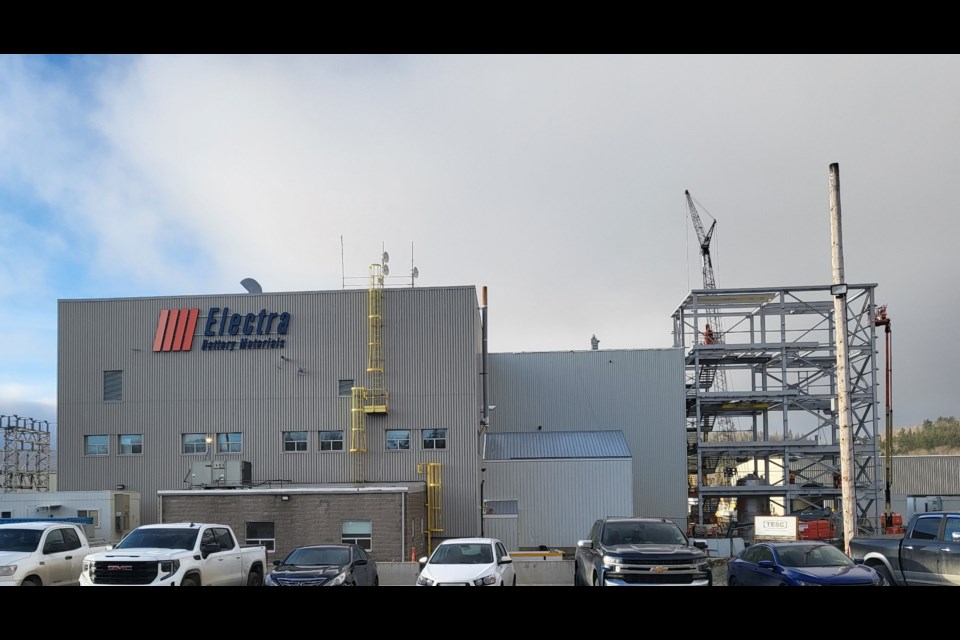Electra Battery Materials has started up its $3-million Temiskaming demonstration recycling plant to recover metals from ‘black mass’ material, coveted by the North American electric vehicle sector.
The proprietary hydrometallugical process that the Toronto company has been working on for years has finally been activated, according to a Dec. 22 news release.
The company is sourcing black mass material from multiple suppliers in North America, Europe and Asia.
These suppliers feed spent batteries and battery cells through a mechanical process that involves crushing, sorting and sieving the material to produce a powdery substance called ‘black mass.’
The material is transported to Electra’s refinery site outside the town of Cobalt where the high-value metals of nickel, cobalt, lithium, copper and graphite are extracted extracted. These metals are found in lithium-ion batteries.
“The launch of the black mass demonstration plant is indicative of Electra’s metallurgical expertise and potential of our refinery complex to address North America’s requirement for battery-grade materials,” said Mark Trevisiol, Electra’s vice president of project development, in a statement.
The company said the plant will process 75-tonne batches of black mass. This trial phase is expected to be finished by the first quarter of 2023.
If the process works well and the economics look good, company CEO Trent Mell said in a Dec. 22 news release that they would proceed this coming year with building a 5,000-per-tonne-a-year commercial plant.
In a statement, Mell said launching the demo plant is a good capper to end 2022.
“With the outlook for electric vehicle adoption in North America becoming increasingly bullish as a result of the recent passage of the U.S. Inflation Reduction Act and the considerable investments made by automotive companies to electrify their fleet, the need for a domestic supply of battery-grade materials supply whether through primary refining or recycling processes becomes critical.”
Recycling is an integral part of Electra’s hugely ambitious plans to construct the only North American battery metals industrial park that involves producing cobalt, nickel and manganese sulfates into the precursor material needed by manufacturers of lithium-ion batteries.
Construction continues on the proposed $800-million complex at the site of the former Yukon refinery.
A commercial-scale recycling plant is the second phase of the build-out. The first phase, a cobalt sulfate refinery, begins production in the spring of 2023. It will be North America’s only such processing plant and will have an initial production capacity of 5,000 tonnes of contained cobalt per year.
“Combined with our planned production of cobalt, nickel, and manganese sulfates, commercialization of our black mass recycling capabilities will diversify our cash flow and customer base,” said Mell.




